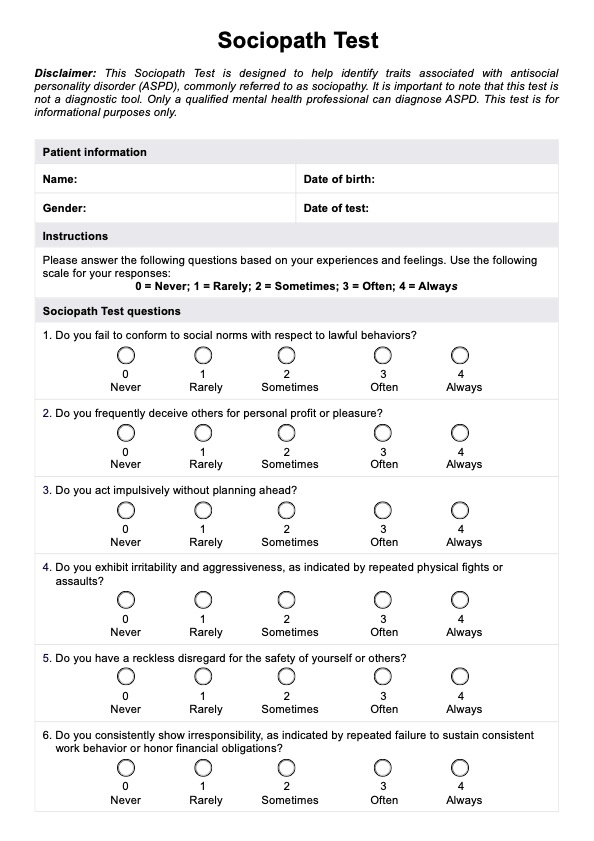Antisocial personality disorder (ASPD) is a complex condition, and there's no cure. However, treatment with a mental health professional can significantly improve an individual's ability to manage symptoms. Therapy can teach them coping mechanisms, communication skills, and how to take responsibility for their actions. Medication might address co-occurring issues like bipolar disorder or depression. Success depends on the person's willingness to participate in treatment and their support system.

Sociopath Test
Explore clients' behavioral patterns with our free Sociopath Test template. Gain insights and start your journey towards self-understanding today.
Sociopath Test Template
Commonly asked questions
Generally, people with antisocial personality disorder (ASPD) struggle with empathy. They may have difficulty understanding or caring about the feelings of others. This can make it challenging for them to form healthy relationships and may lead to manipulative or hurtful behavior.
Antisocial personality disorder (ASPD) or sociopathy is a personality disorder characterized by a pervasive pattern of disregard for the rights of others, lack of empathy, and engaging in antisocial behaviors. It differs from other mental disorders, such as bipolar disorder or depression, which primarily involve mood disturbances. Antisocial personality disorder (ASPD) is also distinct from conditions like psychopathy, which involves additional traits like superficial charm and a complete lack of remorse.
EHR and practice management software
Get started for free
*No credit card required
Free
$0/usd
Unlimited clients
Telehealth
1GB of storage
Client portal text
Automated billing and online payments











